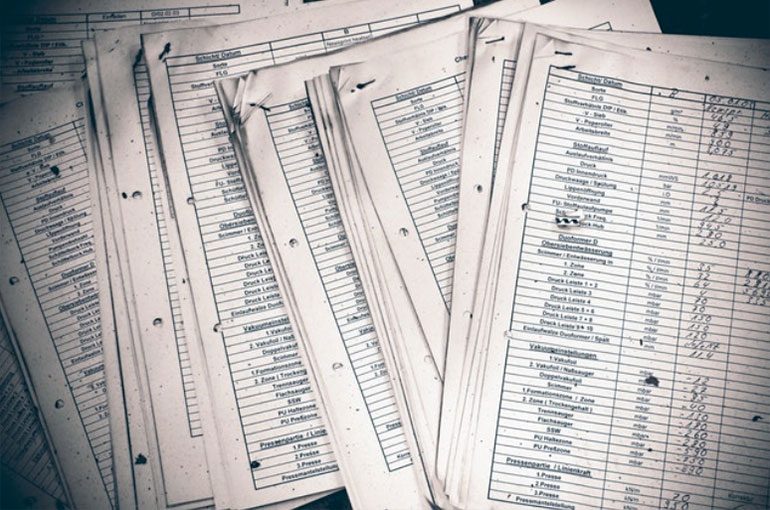Running a Vancouver, WA business is hard enough without constantly thinking about accounting. Audits, tax penalties, and liens on your bank accounts can result from a simple missed bookkeeping entry or forgotten deadline. With so much on the line, worrying about accounting can keep you from properly running your business.
We’ve put together some key accounting tips below to help you keep the finances of your business straight.
Keep Your Expenses in Order
Keeping your expenses in order will ensure your Vancouver business is on track, allowing you to:
- Keep a record of deductible expenses
- Prepare accurate tax returns
- Have a safeguard against an audit
- Track the growth of your business
- Prepare financial statements

TRACK EVERY EXPENSE
Every expense, no matter how big or small, should be tracked. This will help you properly evaluate expenditures, and also assist you in the event of an audit.
5 Key Expenses to Pay Careful Attention to
- Meals & Entertainment – All meal and entertainment expenses used for business purposes should have the intent and members of the meeting logged on the back of the receipt. Remember, most meal & entertainment expenses are 50% deductible but food brought into your office for all employees may be 100% deductible. Knowing the difference is important.
- Business Travel – Make sure and document personal travel vs. work travel, as the IRS considers them separate.
- Driving Expenses – Only count miles that are explicitly for work purposes. Make sure to track both the total miles for business, but also total overall miles so that you or your accountant can make the proper calculation when writing off vehicle expenses.
- Home Office – Keep track of all expenses for your home office if you are working from home. The amount you can deduct is a percentage based on the square footage of your office relative to your house or apartment. Make sure to know the square footage of both when working on your taxes.
It is particularly important with expenses to be logging them correctly, so we advise hiring a trusted Vancouver Accountant go over your expenses with you.

SEPARATE BUSINESS AND PERSONAL EXPENSES
Keep your business and personal finances clear and separate. The IRS is always on the lookout for suspicious behavior with this, so it will save you a lot of headaches to separate these as clearly as possible.
We recommend keeping separate bank and credit card accounts for your business and personal finances. This will allow you to easily decipher expenses when the time comes, and make it easy to defend against any audit that comes your way. if you do use a business account for personal reasons, set up a separate account so that it’s easy to identify between the different expenses.
Anticipate Taxes
There are two things certain in life: death and taxes. Of all the mistakes we see businesses make, it’s tax related mistakes we see the most. Most often it’s just an innocent mistake that could be easily avoided with the help of an experienced accountant.
Below we’ve put the two most common issues we see with taxes.
NO MONEY LEFT
Make sure to put money aside for taxes throughout the year. You don’t want to be in a situation where you can’t make a tax payment and have to pay penalties or interest payments on a late payment. Even worse, you don’t want to have lien on your bank account, causing you to not have access to your own money.
NOT KNOWING KEY DATES
Dates change yearly, so stay on top of key dates so you see them coming. It’s important to have adequate time to prepare the relevant forms to submit them on time.
Click on the below links to find information on yearly tax dates.
- IRS
- Washington State
- Washington State will determine if your business needs to report excise taxes monthly, quarterly, or annually. Each have their own due dates and penalty schedules, so be sure to study carefully!
- Payroll taxes are due throughout the year on recurring monthly, quarterly, and annual schedules.
For Clark County, you will need to submit a Business Personal Property Listing Form by April 30th. This is a tax on any personal property your Vancouver business owns. Business personal property is all “movable furniture, fixtures, machinery, farm equipment and supplies owned, possessed, or controlled by an individual, sole proprietorship, partnership, corporation, or association in their business.”

Block Out Time to Update Your Books
One of the worst things you can do as a business is fall behind on your bookkeeping. Doing so creates a logjam in your Vancouver business. Taxes will be paid late, invoices won’t be properly followed up on, and you will not be able to accurately track the performance of your business.
Bookkeeping is the day-to-day process of recording and categorizing transactions, and reconciling them with your bank statements. This is different from accounting, which takes a high level look and makes sense of the bookkeeping data to develop financial statements.
In order for your accounting to be effective you must properly maintain your books.
Set aside time every week to get your paperwork in order and to reconcile your books. Do not fall behind and have your business be a mess!

DEVELOP A BOOKKEEPING SYSTEM
It’s important to develop a system for your bookkeeping early on. There are a couple of ways you can do this:
- DIY software like Quickbooks or Xero
- Outsourced or part-time bookkeepers
- An in-house bookkeeper or accountant
In addition, you must decide between a cash or accrual method of accounting.
- Cash – Expenses and revenues are recognized when funds are received or paid
- Accrual – Expenses and revenues are recognized when the transaction occurs, even if no money has changed hands
While the system can change as you scale, it’s best to stick with either cash or accrual method once you have decided. Make sure to talk with an accountant to ensure you are choosing the right one to fit your needs. Generally we recommend accrual so you get a full picture of your receivables and accrued expenses and they get recorded in the accounting period when incurred.
FOLLOW UP ON ACCOUNTS RECEIVABLE
Don’t let accounts receivables age too long. While it’s relatively easy to send out an initial invoice, it can also be easy to forget about and not send follow-up invoices for unpaid bills.
Failing to stay on top of accounts receivable will cost you lost revenue. You’ll also waste time looking through accounts and records to determine if you got paid.
Accepting online payments can be helpful in making sure your invoices are properly followed up.

Keep Track of Labor Costs
Paying your employees is usually one of the biggest expenses a business can have.
Track what you are spending on:
- Wages
- Payroll taxes
- Benefits
- Overtime pay
- Office expenses
Taking a close look at this can provide some insight into these expenses. This will allow you to develop a sense of your business and help you decide where you can strengthen your team.
Understand When You Need an Accountant
While some businesses may not feel like they need an accountant, the vast majority do. Hiring an accountant or bookkeeping service for your business will save you time and money in the end, and allow you to fully focus on your business.
Opsahl Dawson has been serving Vancouver business for almost 20 years, and would love to help your business grow.
At Opsahl Dawson we specialize in:
- Tax planning and preparation
- Business entity selection
- Business Transactions (M&A)
- IRS Representation
- State and Local Taxes
- Financial Statements
- Bookkeeping services
Contact us at 360-737-8007 to see how we can become your trusted accounting partner.







